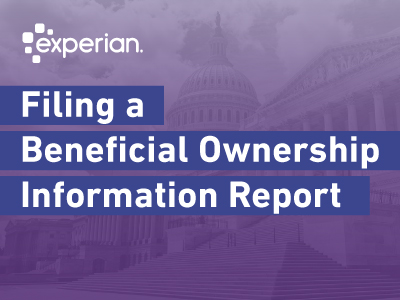Veteran entrepreneurs have always been at the core of American business owners. In May of this year, Experian conducted a series of interviews with veteran business owners and found that the skills and values learned while serving their country naturally prepared them for entrepreneurship. Of those skills and values were leadership, adaptation, discipline, and perseverance.
Recently, the New York Federal Reserve Bank, in conjunction with the U.S. Small Business Association (SBA), released a detailed report about veteran business ownership and found that the number of veteran entrepreneurs is declining. With historical numbers revealing strength in veteran entrepreneurship, what are the reasons for the sudden decline?
The U.S. Small Business Association (SBA) reports in a series of surveys, 36% of veteran entrepreneurs had no prior interest in business ownership before their military service. Because of the training and experience of serving in the military, veterans seem to be well-fitted for entrepreneurship.
According to the Institute for Veterans and Military families, of those who returned home from prior wars, 49.7% of WWII vets and 40% of Korean War veterans started their own businesses. The U.S. Bureau of Labor Statistics also reports that the highest rates of self-employment were those who served in World War II, Korea, and Vietnam.
Veteran business formation declining
In a 2011 report, however, the U.S. Small Business Association noted a decline in veteran entrepreneurs and began to look deeper into determining factors. Part of the reason was that the older generation was aging out of the workforce. Since 9/11, only 4.5% of veterans have opened businesses, clearly emphasizing that the rate of new veteran entrepreneurs is in steady decline.
Also of note, compared to non-veteran-owned small businesses in any industry, veteran-owned companies with 1 – 4 employees seem to be underperforming in sales. Larger veteran-owned businesses, with 5 or more employees, actually outperform non-veteran owned businesses. Does this reveal that newer, veteran-owned small businesses seem to have more challenges than veteran entrepreneurs of decades past?
Factors in the decline of veteran entrepreneur success
Recent years have seen many corporate initiatives that encourage veteran hiring and could be contributing to the decline of veteran entrepreneurs. The New York Fed’s report on veteran entrepreneurship notes, however, that veterans are underemployed compared to non-veterans and nearly of quarter of returning vets would like to start businesses. Further details of the report reveal that veterans long to “forge their own path” and “showcase skills”. The challenge for many veterans is the lack of a strong business or personal network with which to begin their new ventures. Because they’ve been away and typically relocate fairly often, the lack of social resources could be a factor in the decline of new veteran-owned businesses.
The Federal Reserve Bank analyzed data and Small Business Credit statistics of veteran and non-veteran business owners and found that the biggest factor affecting veteran entrepreneurs is access to capital.
Small business access to capital
According to the New York Fed Small Business Credit Survey, the firms surveyed had less than 500 employees and were asked about their business performance and financing needs. If more than 50% of the business was owned by a veteran, they were referred to as veteran-owned businesses.
The report found that the need for small business financing was similar between veteran and non-veteran owned businesses.The difference was that veteran-owned businesses submitted more applications and reached out to banks large, small and online. Even with the greater number of applications and the variety of lenders, veteran-owned businesses typically obtained less financing and saw lower approval rates than non-veteran owned businesses. During a time of economic recovery (2010 – 2017), the SBA loans to non-veteran owned businesses increased to 82% as compared to 48% for veterans, even with relief programs set aside for veterans.
Veterans also seem to be asking for smaller loans, something that also affects women business owners’ access to capital. Larger banks are less likely to approve loans under $100K.
Because of the frequent traveling and working overseas, some veterans are also struggling with building solid credit or having collateral. As they’re seen as higher risk, some lenders aren’t willing to take the chance.
Veterans are still asking for help
Even with these challenges and barriers to capital, veterans are seeking out assistance from the SBA and other resources to grow their small businesses after they have been denied capital. With common traits of strength and self-reliance, veteran entrepreneurs may be starting businesses before they’ve met with financial and business advisors. More preparation and knowledge about which lenders would better meet their financial needs and how to prepare for credit and collateral requirements could be helpful for veteran business owners. The New York Fed report suggests for several recommendations for policymakers to help veteran business owners including:
- Easier debt financing
- Mentorship
- Awareness and marketing
To learn more about the challenges faced by veteran entrepreneurs and how to help, access the New York Federal Reserve Bank report here.

